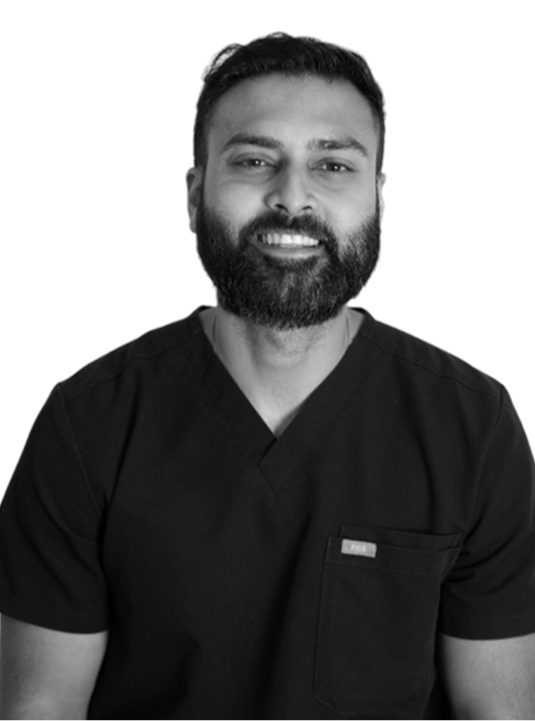As a physician, I've seen countless skin concerns, and while facial acne often takes center stage, an often-overlooked and equally frustrating condition is scalp acne. It can be uncomfortable, unsightly, and sometimes even painful. But what exactly is it, and more importantly, what can you do about it? Let's dive in.
What is Scalp Acne?
Just like the skin on your face, your scalp is covered in hair follicles and sebaceous glands that produce oil (sebum). When these follicles become clogged with excess oil, dead skin cells, and bacteria, they can become inflamed and infected, leading to breakouts. These breakouts can manifest as various types of lesions, including:
-
-
Comedones: These are your basic whiteheads and blackheads.
-
Papules: Small, red, tender bumps.
-
Pustules: Red, tender bumps with a white or yellow center of pus.
-
Cysts and Nodules: Larger, deeper, and often more painful lesions that can sometimes lead to scarring.
Scalp acne can appear anywhere on the scalp, but it's often found along the hairline, at the back of the neck, and on the crown.
Why Does It Happen? The Causes
Several factors can contribute to the development of scalp acne:
-
-
Excess Sebum Production: Overactive oil glands can lead to clogged pores. This can be due to genetics, hormonal fluctuations, or even stress.
-
Product Buildup: Using too many hair products (gels, sprays, leave-in conditioners) can accumulate on the scalp and block follicles. Not rinsing shampoo and conditioner thoroughly can also be a culprit.
-
Sweat and Friction: Wearing hats, helmets, or headbands for extended periods can trap sweat and bacteria, creating an ideal environment for breakouts. Similarly, sweating heavily during exercise and not washing your hair afterward can contribute.
-
Hormonal Changes: Androgens (male hormones) can stimulate sebum production. This is why acne often flares during puberty, menstruation, and sometimes even in conditions like Polycystic Ovary Syndrome (PCOS).
-
Diet: While the link isn't as clear-cut as some believe, some studies suggest that a diet high in refined carbohydrates and dairy may exacerbate acne in some individuals.
-
Medications: Certain medications, like corticosteroids, lithium, and some anti-epileptic drugs, can cause acne as a side effect.
-
Inflammation and Bacteria: The P. acnes (now often referred to as C. acnes) bacterium, naturally present on the skin, thrives in clogged follicles and contributes to inflammation.
-
Folliculitis: Sometimes, what appears to be acne is actually folliculitis, an inflammation of the hair follicles often caused by bacterial or fungal infections. This is why a proper diagnosis from a physician is important.
When to See a Doctor
While mild scalp acne can often be managed with over-the-counter remedies and lifestyle changes, you should see a physician (dermatologist if possible) if:
-
-
Your scalp acne is severe, painful, or persistent.
-
You develop large cysts or nodules.
-
You notice signs of infection (increased redness, warmth, pus, fever).
-
You experience hair loss in affected areas.
-
Over-the-counter treatments aren't working after a few weeks.
A physician can accurately diagnose the condition, rule out other skin issues, and recommend appropriate treatments, including prescription medications.
Treatment Options: My Professional Advice
The approach to treating scalp acne depends on its severity and underlying causes. Here's a breakdown of common strategies:
Over-the-Counter (OTC) Solutions:
-
-
Medicated Shampoos: Look for shampoos containing active ingredients like:
-
Salicylic Acid: A beta-hydroxy acid that exfoliates the scalp, helping to unclog pores.
-
Tea Tree Oil: Has antiseptic and anti-inflammatory properties.
-
Glycolic Acid: An alpha-hydroxy acid that helps to exfoliate.
-
Ketoconazole: An antifungal agent, especially if fungal folliculitis is suspected.
-
Benzoyl Peroxide: An antibacterial agent that can help kill acne-causing bacteria. Be careful, as it can bleach hair and fabrics.
-
Gentle Cleansing: Wash your hair regularly, especially after sweating, but avoid harsh scrubbing which can irritate the scalp.
-
Avoid Heavy Hair Products: Steer clear of oily or waxy products that can clog follicles. Opt for non-comedogenic and water-based formulas.
Prescription Treatments (from your physician):
-
-
Topical Antibiotics: Such as clindamycin or erythromycin, to reduce bacteria and inflammation.
-
Topical Retinoids: Like tretinoin or adapalene, which help to normalize cell turnover and prevent clogged pores.
-
Oral Antibiotics: For more severe cases, medications like doxycycline or minocycline can reduce bacteria and inflammation systemically.
-
Oral Isotretinoin: (Accutane) Reserved for very severe, cystic, and persistent cases that don't respond to other treatments. This is a potent medication with significant side effects and requires close monitoring.
-
Corticosteroid Injections: For painful, inflammatory cysts, a physician may inject a corticosteroid directly into the lesion to reduce swelling and pain.
Lifestyle Tips for Prevention
Prevention is always key. Here are some habits I recommend:
-
-
Wash Your Hair Regularly: Especially after exercise or if you tend to have an oily scalp.
-
Rinse Thoroughly: Ensure all shampoo and conditioner are completely washed out.
-
Choose Hair Products Wisely: Look for "non-comedogenic" or "oil-free" labels.
-
Avoid Touching Your Scalp: Picking or scratching can worsen inflammation and introduce more bacteria.
-
Clean Headwear: Regularly wash hats, headbands, and helmet liners.
-
Shower After Sweating: Don't let sweat sit on your scalp for too long.
-
Balanced Diet: While not a cure, a healthy diet rich in fruits, vegetables, and lean proteins may support overall skin health.
-
Manage Stress: Stress can impact hormones and sebum production. Find healthy ways to cope with stress.
The Bottom Line
Scalp acne is a common and treatable condition. If you're struggling with it, remember that you don't have to suffer in silence. As a physician, I strongly encourage you to seek professional advice. A proper diagnosis and a tailored treatment plan can make a significant difference, helping you achieve a healthier, happier scalp.




